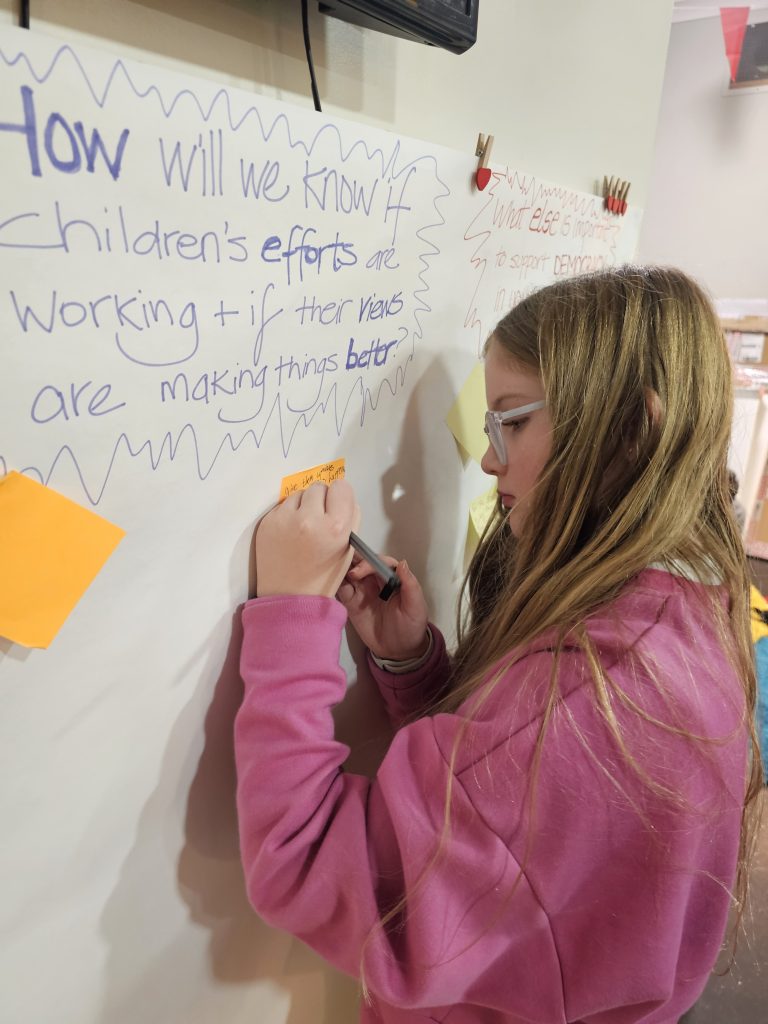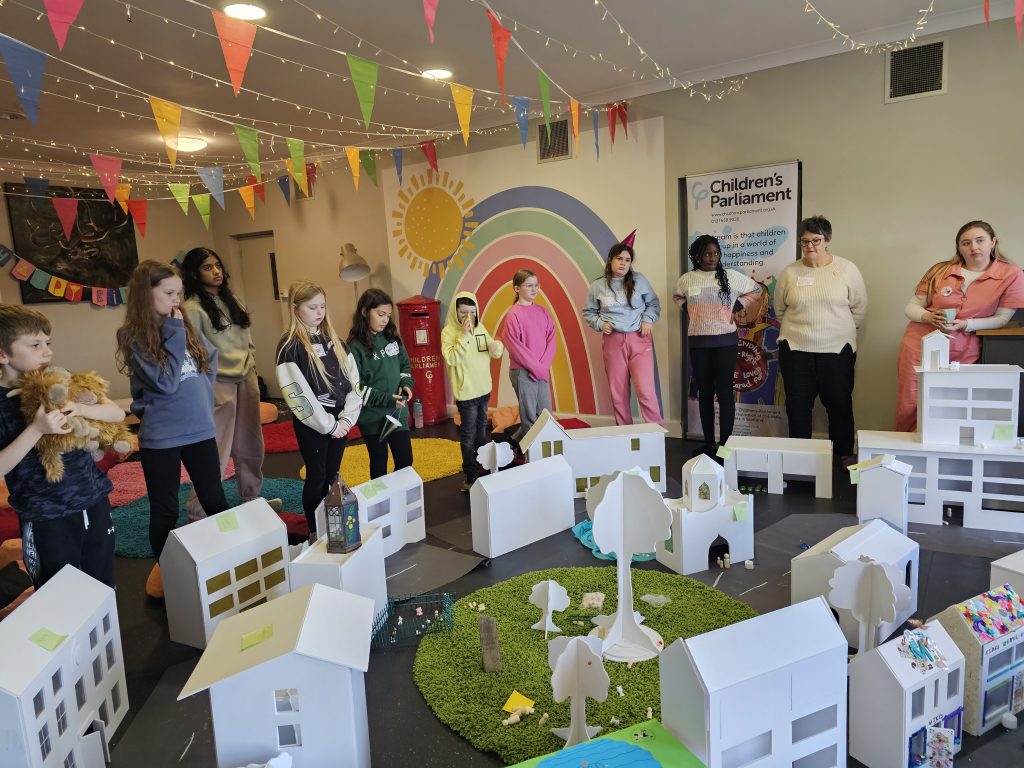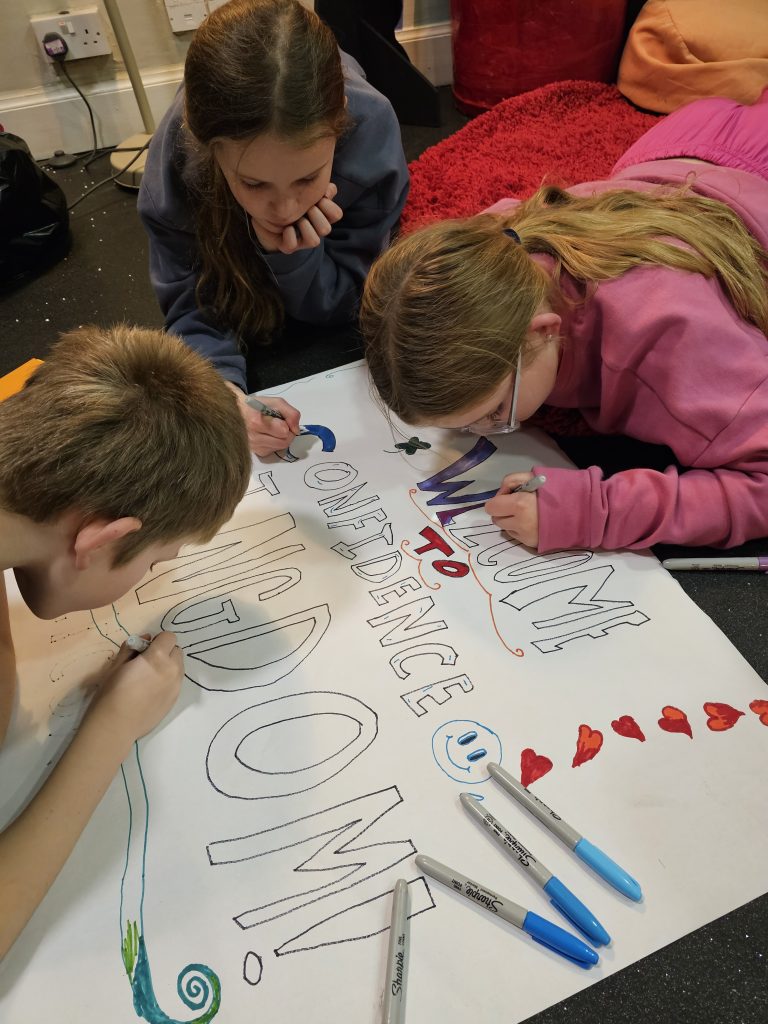
Democracy Matters: Imagining a different democratic future
If they feel like their opinions are valued as a child, they will feel like their opinions are valued as an adult
Member of Children’s Parliament
Following the first phase of the Local Governance Review, the Scottish Government asked communities from across Scotland to engage in further conversations based on the new Democracy Matters material, ‘imagining a different Democratic Future.’
Children’s Parliament supported the engagement of children from across Scotland in this second phase by inviting our Children’s Human Rights Defenders on a three-day residential to build their own imaginary town, which they called Confidence Kingdom. The children considered how to engage in local decision-making processes, and what this should look and feel like in their everyday lives.




Key messages
Confidence Kingdom is not like other places. It is a town where children and adults are equal. Children’s views are included in local decision-making and their life experiences are considered and respected. For Confidence Kingdom to be realised, the following needs to be considered:
- Children’s understanding of local decision-making: Children, especially younger children, lack an understanding of when and where decisions are made in Scotland, and who makes them. They need an opportunity to learn about these processes in a supportive environment, and to have opportunities to share ideas about what new ways adult decision-makers can hear from children.
- Fun ways for children to participate: For Members of Children’s Parliament, it was clear that there were limited ways to take part in their local community. If adults and children are to work together, there needs to be creative and fun structures in place to do so – where children can feel comfortable, engaged and supported.
- Children’s need for a community: When considering what they liked about the places they live, and when building Confidence Kingdom, it was clear that Members of Children’s Parliament prioritised the emotional relationships between people. They want to live in a place where they feel safe, surrounded by people who know one another. The emotional infrastructure of a community needs to be considered, to ensure it is designed in a way that supports intergenerational participation.
- Engaged Decision-Makers: Decision-makers and community representatives need to have a knowledge and understanding of children’s rights, and how to bring them alive in their work. They need to confidently engage with children in their role as a representative, ensuring children’s meaningful participation. Decision-makers also need to hold a level of accountability to ensure children receive feedback on what progress is being made about the issues children have raised.
- Children have good ideas: Being involved in local decision-making excites children and they would like opportunities to work with adults in their community to influence what happens around them. As an example of their potential for positive contribution, through the design of Confidence Kingdom, children have shared imaginative ideas that would benefit the whole community. Importantly, our Members of Children’s Parliament were keen to work alongside adults to build a better local democracy, one that can work for everyone.

This report shines a light on how our democracy is just as important to children as it is for adults. We hope that it helps us to ensure that more decisions at community level can be made in a way that involves everyone regardless of age.
Scottish Government, 2024
Please download the full report using the link below:
Better Engagement Better Policy: A case study on how children can influence Scottish Government policy
Throughout the Democracy Matters Consultation, Scottish Government colleagues from the Local Governance Review participated in all the residential activities with the children. This offered a first-hand opportunity to develop positive relationships with the children involved, including getting to know them personally, hearing their hopes and aspirations and relating this back to the aims of the consultation.
Find the case study below, reflecting on Scottish Government’s engagement with children and how that can inform the development of a more effective participative process across Scottish Government and beyond. The case study is from one of the policy leads who took part in that journey reflecting on their experience engaging with the children.
If you have any queries about our Democracy Matters work, please contact the team with info@childrensparliament.org.uk.